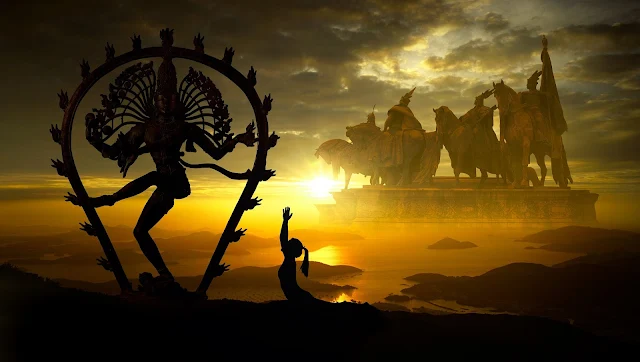
Hinduism is the oldest and third-largest religion in the world, with about one billion followers.
It has no single founder, no central authority, and no universal set of beliefs or practices.
Instead, it’s a collection of related beliefs centered on karma, dharma, and moksha.
In this article, we look at some of the most important aspects of Hinduism that have shaped its history as well as its present state today.
What is the Meaning of Hinduism?
Hinduism is the name given to a family of religions originating in the Indian subcontinent.
More than a religion, Hinduism is a way of life.
There is no single set of beliefs that all Hindus follow; in fact, Hindus themselves are not even sure what Hinduism is.
The word Hindu comes from the Sanskrit word Sindhu, a river in the Indus valley.
The term Hindu was used in ancient times to describe people who lived near the Indus River.
The word has been applied to people living in the Indian subcontinent, and some believe Hinduism is the oldest religion in the world.
However, it is difficult to determine exactly what Hinduism is because no one knows who started it or when.
Karma in Hinduism
Karma is the law of cause and effect applied to actions.
Each action has a result.
- Action is good: It leads to good things happening
- Action is bad: It leads to bad things happening
All actions have consequences, whether they are physical, mental, or verbal.
Karma doesn’t punish you; it is the law of nature.
You are the one who punishes yourself for the choices you make.
One of the most important concepts in Hinduism and one that is central to the Hindu way of life is the concept of karma.
Karma is the law of cause and effect applied to the moral or ethical aspects of people’s lives.
In other words, karma is the belief that the good and bad actions that people do today will have consequences in the future, whether in this life or the next.
Dharma in Hinduism
Dharma is a concept that is often translated as religion, but it means much more than that.
Dharma is related to religion, but it also includes:
- Law
- Justice
- Ethics
- Virtue
In Hinduism, people are obliged to follow the path to liberation by the following dharma.
Dharma is not a set of rules or commandments but a path of self-realization.
If you travel that path, then you can discover a way of life that is fulfilling and purposeful.
Dharma is the order from which all creation flows.
It’s the underlying principle of the cosmos: Hinduism says that the world is created and re-created through the force of dharma.
You can’t separate dharma from Hinduism because Hinduism is dharma.
Bhagavad Gita
The Bhagavad Gita is often referred to as the Hindu bible.
It is a 700-verse scripture that is part of the great Indian epic, the Mahabharata.
The Bhagavad Gita is perhaps the most widely read and quoted Hindu scripture.
Gita was written around the 5th century BC, but it’s central to Hinduism because it’s a conversation between the Pandava prince Arjuna and the great warrior Krishna.
Arjuna is about to go into battle, but he’s overcome with fear and uncertainty.
So, he turns to his friend Krishna for guidance.
The Gita is a conversation between two very close friends but also between two very different ways of seeing the world.
Arjuna and Krishna considered life as follows.
- Arjuna: Place of Suffering, Despair, and Fear
- Krishna: Place of Joy and Opportunity
The Gita is about how each person can see the world the way they choose to see it.
Moksha in Hinduism
Moksha is the path to liberation from the cycle of birth and death.
All life consists of never-ending cycles of birth and death.
So, once you die, you will be reborn again and again.
The only way to break that cycle is to achieve liberation.
You don’t take anything in life for granted; you are aware of the fleeting nature of life.
Not everything is meant to be, but nothing is meant to hurt you.
You don’t cling to anything because everything is transient and will pass away sooner or later.
Who’s a Hindu?
Officially, no one knows who or what a Hindu is.
There is no universally accepted definition or understanding of what constitutes this religion.
There is no one authority or institution that you can go to for a one-stop definition.
The word Hindu is a geographical term that describes people who live in the Indian subcontinent.
It is derived from the Sanskrit word Sindhu — which refers to the river that flows through Punjab — and is thought to have first been used in the ancient Persian language.
Since there is no universally accepted definition of what constitutes this religion, one can only speak in terms of generalizations.
In general, Hinduism is a collection of related beliefs and practices that are centered on the idea of moksha — liberation from the cycle of birth and death.
There is no single religious authority in the Hindu tradition, and there is no one correct way to be a Hindu.

Post a Comment